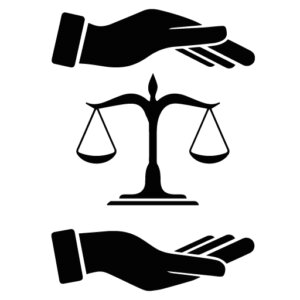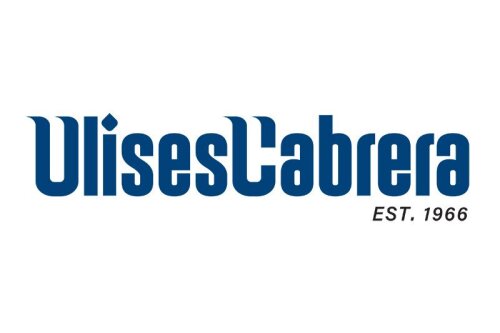Best Landlord & Tenant Lawyers in Dominican Republic
Share your needs with us, get contacted by law firms.
Free. Takes 2 min.
Free Guide to Hiring a Real Estate Lawyer
Or refine your search by selecting a city:
List of the best lawyers in Dominican Republic
About Landlord & Tenant Law in Dominican Republic
In the Dominican Republic, the relationship between landlords and tenants is governed by a combination of local laws and customs designed to safeguard the interests of both parties. The primary legislation regulating these relationships is the Tenancy Act (Ley de Alquileres). This law outlines the rights and responsibilities of landlords and tenants, ensuring fair practices in rental agreements, maintenance obligations, and dispute resolution. Understanding the fundamental principles of this law is crucial for anyone involved in either side of the rental market in the country.
Why You May Need a Lawyer
People may require legal assistance in Landlord & Tenant matters for several reasons. Firstly, negotiating rental contracts can be complex, and ensuring that all terms are fair and comprehensively defined might necessitate legal advice. Secondly, disputes may arise regarding rent increases, property maintenance, or early lease terminations, where a lawyer can mediate and provide solutions. Thirdly, eviction proceedings or lease breaches can have significant legal implications that require professional representation. Overall, a lawyer can help protect your rights, provide clarity on your obligations, and ensure that legal standards are upheld.
Local Laws Overview
The Dominican Republic’s Tenancy Act sets out a framework for the rental process, covering everything from entering a lease agreement to resolving disputes. Key aspects include the necessity for a formal contract stating rent, terms, and conditions; guidelines for rent increases, which require justification and notice; and rules governing eviction which demand a court order. The law also outlines tenant rights, like the right to a habitable living environment, and landlord obligations, such as timely repairs and maintenance. Legal eviction is strictly regulated, requiring adherence to court decisions.
Frequently Asked Questions
What are the essential elements of a rental contract in the Dominican Republic?
A rental contract should include details such as rental amount, payment terms, lease duration, and responsibilities for maintenance and repairs.
Can a landlord increase rent unilaterally?
No, landlords must provide justification for rent increases and cannot do so without notifying the tenant and obtaining consent as per the legal requirements.
What should a tenant do if the property is not maintained adequately?
Tenants should first communicate with the landlord and, if unresolved, consult with a legal professional for possible remedial actions as per the tenancy laws.
How can disputes be resolved between landlords and tenants?
Disputes may be resolved through negotiation and mediation, and if required, through formal legal proceedings in the competent court.
What are the conditions under which a landlord can evict a tenant?
Eviction can only occur for reasons stated in the agreement, such as non-payment of rent, and must be processed legally with a court order.
Do tenants have the right to renew their leases?
Tenants may have the right to renew their leases depending on the terms initially agreed upon and any statutory provisions protecting tenancy continuity.
How much notice is required for lease termination?
The notice period for lease termination usually corresponds with the duration agreed upon in the contract, but specific laws may mandate minimum requirements.
What obligations do tenants have to maintain the property?
Tenants are generally expected to maintain cleanliness and prevent damage beyond normal wear and tear, as specified in their lease agreement.
Is a security deposit mandatory, and what are the terms associated with it?
While commonly requested, the terms, amount, and conditions for a security deposit should be stated clearly in the rental contract.
How should legal proceedings be initiated if needed?
To initiate legal proceedings, one should file a complaint with the relevant court, often with the assistance of a legal professional who can guide the case as per local judicial processes.
Additional Resources
For more comprehensive understanding and assistance, consider reaching out to organizations such as 'ProConsumidor', which protects consumer rights, including tenant issues. Local legal aid societies can also provide support. Additionally, consulting the legal section under the Ministry of Housing may provide more updates on landlord and tenant rights.
Next Steps
If you need legal assistance in Landlord & Tenant matters, begin by researching legal professionals who specialize in real estate law in the Dominican Republic. Schedule consultations to discuss your specific situation and understand potential legal remedies. It's also prudent to gather all relevant documents, such as contracts and correspondence, as these will be essential in evaluating your case. Lastly, familiarize yourself with your rights and responsibilities as outlined under local laws to be better prepared in any legal discussions or proceedings.
Lawzana helps you find the best lawyers and law firms in Dominican Republic through a curated and pre-screened list of qualified legal professionals. Our platform offers rankings and detailed profiles of attorneys and law firms, allowing you to compare based on practice areas, including Landlord & Tenant, experience, and client feedback.
Each profile includes a description of the firm's areas of practice, client reviews, team members and partners, year of establishment, spoken languages, office locations, contact information, social media presence, and any published articles or resources. Most firms on our platform speak English and are experienced in both local and international legal matters.
Get a quote from top-rated law firms in Dominican Republic — quickly, securely, and without unnecessary hassle.
Disclaimer:
The information provided on this page is for general informational purposes only and does not constitute legal advice. While we strive to ensure the accuracy and relevance of the content, legal information may change over time, and interpretations of the law can vary. You should always consult with a qualified legal professional for advice specific to your situation.
We disclaim all liability for actions taken or not taken based on the content of this page. If you believe any information is incorrect or outdated, please contact us, and we will review and update it where appropriate.
Browse landlord & tenant law firms by city in Dominican Republic
Refine your search by selecting a city.

















